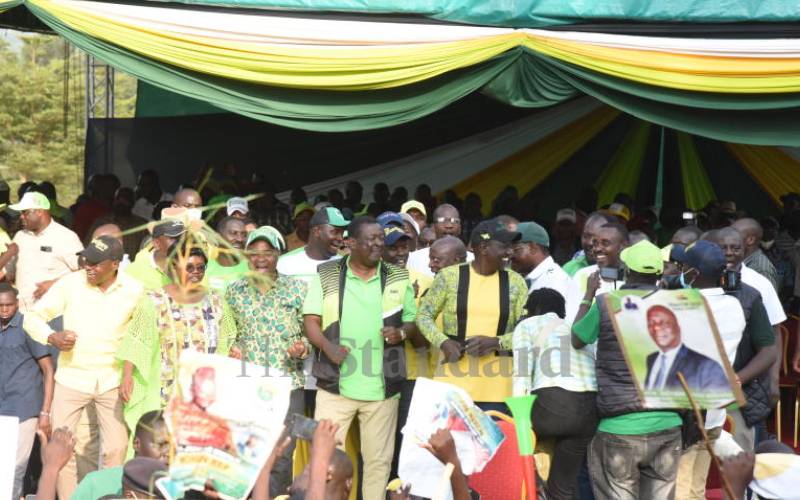×
The Standard e-Paper
Smart Minds Choose Us

Deputy President William Ruto, Musalia Mudavadi (ANC) and Ford Kenya's Moses Wetangula during a past rally in Mbale, Vihiga County. [Benjamin Sakwa, Standard]
So what does Musalia Mudavadi’s jumping into bed with his former opponents at UDA portend for our democracy?